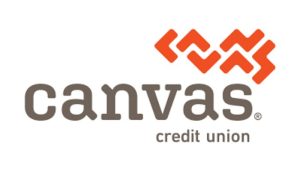Bank personal loans are a powerful tool for achieving financial goals. They provide quick access to funds, helping you tackle unexpected expenses or invest in opportunities.
Whether it’s a medical bill or a long-awaited vacation, these loans can make it happen.
Understanding how bank personal loans work is crucial to making an informed decision.
You can choose from various options tailored to your needs and financial situation. Knowing the benefits and requirements can empower you to take charge of your finances.
Understanding Bank Personal Loans
Understanding bank personal loans is important for anyone looking to borrow money.
A personal loan from a bank can help you cover expenses like bills, medical costs, or even a much-desired vacation.
These loans are typically unsecured, meaning you don’t need collateral, like a house or car, to get approved.
When you apply for a bank personal loan, the bank will check your credit score and income.
These factors determine whether you qualify and what interest rates you will receive.
Lower scores might lead to higher rates, so it’s wise to know your credit score before applying.
Repayment terms for bank personal loans can vary, usually between two to five years.
It’s essential to understand how monthly payments are calculated and be sure you can afford them.
This financial tool can bring you closer to your goals and help secure your financial future.
How to Apply for a Bank Personal Loan
Applying for a bank personal loan is a straightforward process.
First, you should collect important documents like your ID, proof of income, and details about your expenses.
This paperwork helps the bank understand your financial situation and decide your eligibility.
Next, visit your bank’s website or go to a local branch to fill out an application.
You will usually need to provide information about how much you want to borrow and your reasons for the loan.
Be honest and clear in your answers to help speed up the approval process.
Once you submit the application, the bank will review it and assess your creditworthiness. They may ask for additional information during this time.
If approved, read the loan terms carefully, including interest rates and repayment plans, before signing any agreements.
Benefits of Bank Personal Loans
Bank personal loans offer several benefits that can help you manage your finances. One major advantage is that they usually have lower interest rates compared to credit cards.
This means you can save money on interest charges when borrowing, making it easier to pay off your debt over time.
Another benefit is the flexibility these loans provide.
You can use the money for various purposes, such as consolidating debts, covering medical expenses, or paying for home improvements.
This versatility allows you to choose how to best use the funds to improve your financial situation.
Additionally, bank personal loans often come with fixed repayment terms. This means you will know exactly how much you need to pay each month.
Such predictability helps you plan your budget better, making it easier to stay on track with your payments and achieve financial freedom.
Interest Rates on Bank Personal Loans

Interest rates on bank personal loans can vary widely based on several factors.
Typically, borrowers with higher credit scores enjoy lower rates, which saves them money over time.
On the other hand, if your credit score is lower, you may face higher interest rates, making the loan more expensive.
In addition to credit scores, the loan amount and repayment term also affect interest rates. Generally, larger loans or loans with longer terms may carry higher rates.
It’s important to compare different loan offers and pay attention to the details before committing to a bank personal loan.
Many banks offer fixed interest rates, which means the rate remains the same throughout the loan term.
This stability allows borrowers to budget effectively and know exactly how much they will pay each month.
Always consider the interest rate when choosing a personal loan, as it plays a crucial role in your overall cost.
Credit Score Requirements for Loans
Credit score requirements for bank personal loans play a crucial role in getting approved. Most banks look for a credit score of at least 600.
However, the higher your score, the better your chances of securing a favorable loan. A strong credit score can help you get lower interest rates and better terms.
If your score falls below the 600 mark, you may still qualify for a loan, but be prepared for higher interest rates.
Some lenders may offer loans to individuals with scores around 580, but these options often come with stricter terms and conditions.
Knowing your credit score can help you understand where you stand before applying.
To improve your credit score, make sure to pay your bills on time and reduce any existing debts. A little effort can lead to a higher score.
This gives you a better chance to unlock the secrets of financial freedom with a bank personal loan that fits your needs.
Common Mistakes to Avoid
When applying for a bank personal loan, many borrowers make common mistakes that can cost them in the long run.
One major mistake is not shopping around for the best interest rates.
Different banks and lenders may offer varying rates, and choosing the one with the highest cost can significantly affect your payments.
Always compare offers before making a decision.
Another common error is overlooking the terms of the loan agreement. Borrowers often focus only on the interest rate and forget to read the fine print.
There could be hidden fees or penalties for late payments. Understanding all the terms helps you avoid surprises later and keeps your budget on track.
Lastly, many people underestimate the importance of their credit score when applying for a loan. Ignoring your score can lead to getting higher rates or even loan denial.
Always check your credit score beforehand and work on improving it if necessary. This simple step can make a big difference in unlocking financial freedom.
Tips for Securing the Best Loan Rate
Securing the best loan rate for a bank personal loan starts with knowing your credit score. Before applying, check your score and make sure it is in good shape.
If your score is low, take some time to improve it by paying off debts and making payments on time.
A higher score often means lower interest rates, which can save you money in the long run.
Another effective tip is to shop around and compare rates from different banks and credit unions.
Each lender may have different offers, so don’t settle for the first one you find. Look for lenders that offer competitive rates and terms.
This will give you more options, allowing you to choose the best fit for your financial needs.
Finally, consider applying with a co-signer if you’re worried about your credit rating.
A co-signer with a strong credit history can help you secure a better rate.
Just remember, both you and your co-signer will be responsible for the loan, so make sure you are both comfortable with this arrangement before moving forward.
Understanding your finances is essential when considering a bank personal loan.
One key factor to know is how much you can afford to borrow without straining your budget.
Assess your monthly income and expenses to determine a comfortable loan amount. This will help you avoid borrowing more than you can repay.
It’s also important to remember that personal loans often come with origination fees or other costs.
These fees can vary between lenders, so take them into account when calculating the total cost of the loan.
Being aware of all fees will help you make an informed decision and find the most affordable option.
Lastly, stay organized during the application process. Keep all necessary documents, like proof of income and identification, in one place.
Having everything ready will make applying easier and faster. A smooth application process increases your chances of getting approved for the loan you need.





